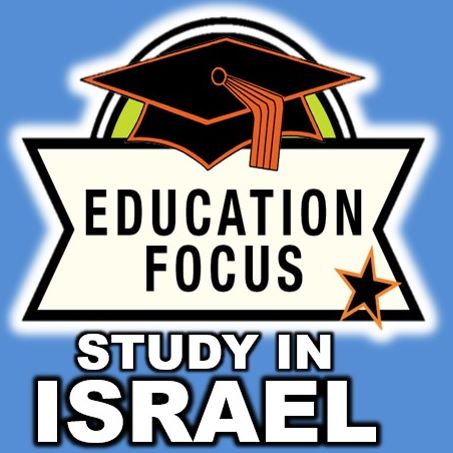
Israel

Israel makes free higher education a drawcard
ANT KATZ
Three entities, and their sub-entities, have been working hand-in-hand to make the notion of completely free, world-class education in Israel a possibility. And. never underestimate the power of Yiddisher kops and ingenuity to make things happen. For instance, look at the Birthright Israel programme which, since 1999, has sent over 500 000 young adults aged 18 – 26 from 64 countries on a free, 10-day, heritage trip to Israel.
The three organisations are:
- Jafi, the Jewish Agency for Israel (JA or Sochnut in Hebrew);
- Telfed, the SA Zionist Federation in Israel; and
- The Israeli government.
Until recently, Diaspora Jewry who studied in Israel meant that they had wealthy parents and/or they made aliyah – and tuition was largely in Hebrew.
Today, the opportunity – both at high school and university level – is available free and in English for Diaspora Jewry, even if they don’t intend making aliyah.
Of course, there are criteria and qualifications that must be met and not all institutions offer all tuition in English. The locally-based arm of the JA, The Israel Centre with offices in Johannesburg and Cape Town, and Telfed, have a coterie of highly qualified staffers who can discuss these options and give expert advice.
This article does not drill down too deeply on the how, where, what, when and who, but in this publication and on our website, you will find more detailed separate articles on:
- Na’ale – free home-language high school tuition in Israel;
- University studies available in Israel; and
- Financial aid and scholarships for Israel studies.
Other articles will explain how it works and who to contact for more detailed information.
Aviad Sela, the shaliach of the Israel Centre in South Africa, says that his staff are working with South African families every day. “We are promoting studies in Israel; it is part of our ‘Be Connected’ goals which aim to show South African Jewry what Israel can offer them,” he says.
Rabbi Dorron Klein, Telfed CEO, explains that Israeli tertiary education is structured differently from what we are used to in South Africa. “There are only seven main universities,” he explains, and these are state institutions. Most have multiple campuses.
State-owned vs private
Privately-owned institutions are not allowed to call themselves “universities” but these “academic colleges” offer internationally-recognised undergraduate and masters’ degrees. In Israel, there is no such thing as an “honours” degree, and a “masters” degree usually requires a minimum of three years’ studies.
SEE ALL EDUCATION FOCUS CONTENT
The seven state universities are: Bar Ilan University in Ramat Gan; Ben-Gurion University of the Negev in Be’er Sheva; Haifa Technion; Haifa University; Hebrew University in Jerusalem; Tel Aviv University; and the University of Ariel.
All seven have branch campuses. The largest university in Israel is Bar Ilan (which also has the most branches) – while others, says Klein, “have larger mother campuses such as Hebrew University and Tel Aviv”.
Another pillar project of the JA is the Na’ale programme which offers high school learners the opportunity to do their last three or four years of high school studies for free, including boarding fees (see separate article).
Sela says the programme is exclusively for foreign students not making aliyah (but does not preclude them from making aliyah later). The learners start their studies in English, French or Spanish and during their first few terms spend a lot of their time studying what olim (immigrants) would normally learn – such as Hebrew, Jewish history and Israeli studies.
They can then move over, once they are comfortable to do so, to joining Hebrew classes. While learners may drop out of the programme if they choose to, the vast majority do not and go on to get their bagrut – the Israeli equivalent of a matric (except it is accepted as a university entrance pass almost anywhere in the world).
“Israel opens the gates to every Jew worldwide,” says Sela. The Government and the JA “budget billions of shekels for this every year”, he says, adding that “Israel is for everyone”.
Many more enquiries coming in
Understandably, the Israel Centres in South Africa are receiving many more enquiries. Two factors are driving the increasing interest and numbers of young people going this route. Firstly, the JA, Telfed and the Israeli Government are making education in Israel for a foreigner in mother-tongue easier to access and free. And, secondly, a situation which many South African parents see as a crisis in higher and tertiary education in the country – and their concern for their children’s future as a result.
Studying in Israel offers international standards and acceptance and costs nothing if one can meet programme criteria. And, if one can’t, says Klein, Telfed has arranged discounts that mean even if South African learners do have to pay for their tertiary studies in Israel, “academic studies would cost no more than they would at Wits”.
With the Israeli academic year running from early September to June annually, many learners who intend to become students join other MASA-sponsored gap-year programmes in Israel in the interim.




